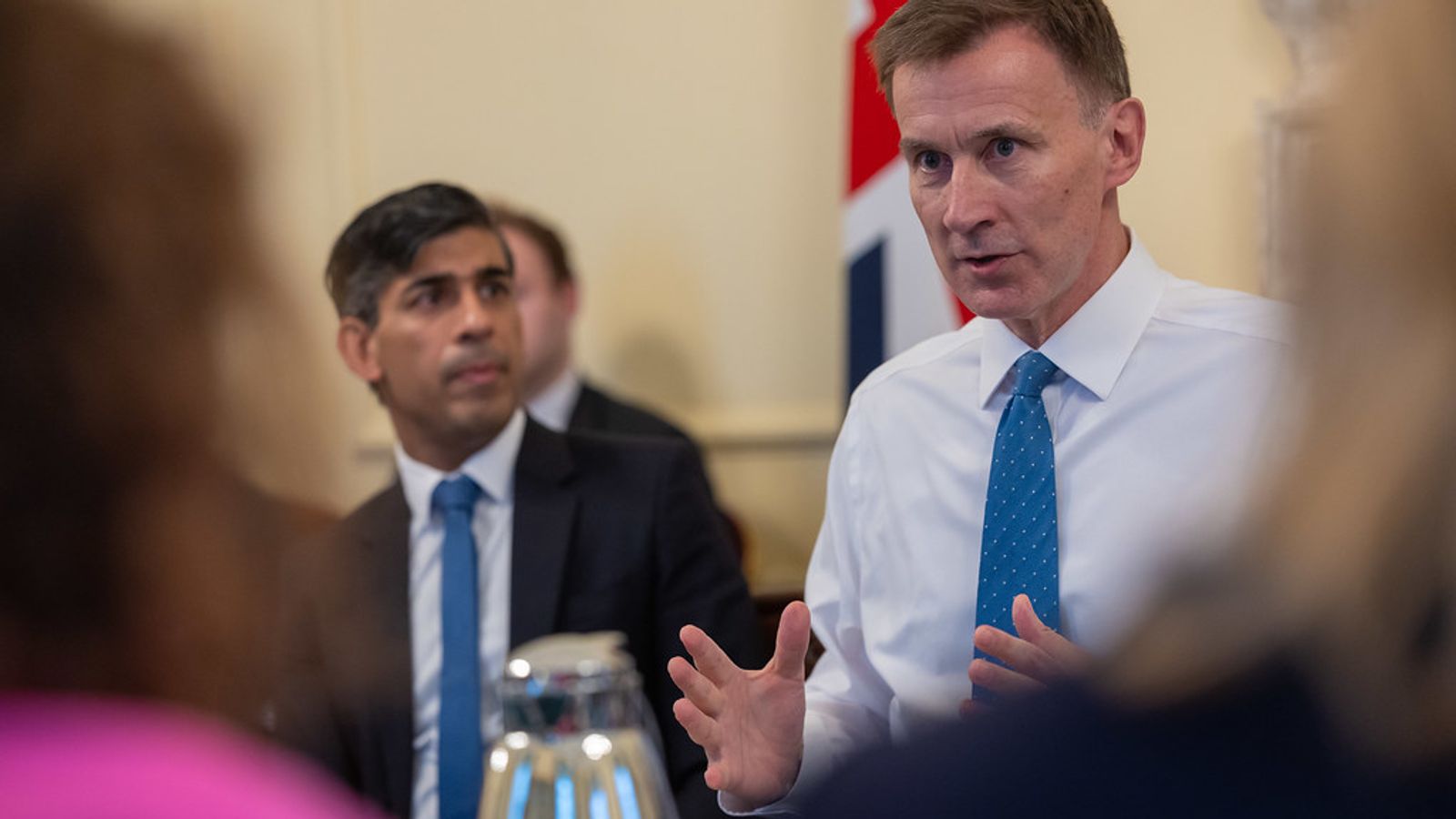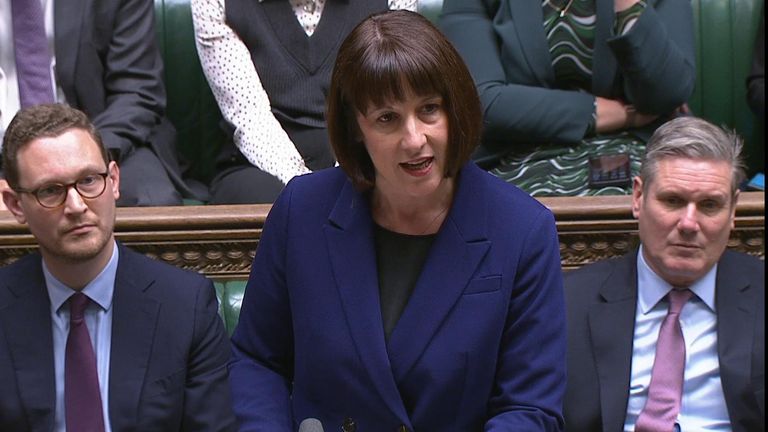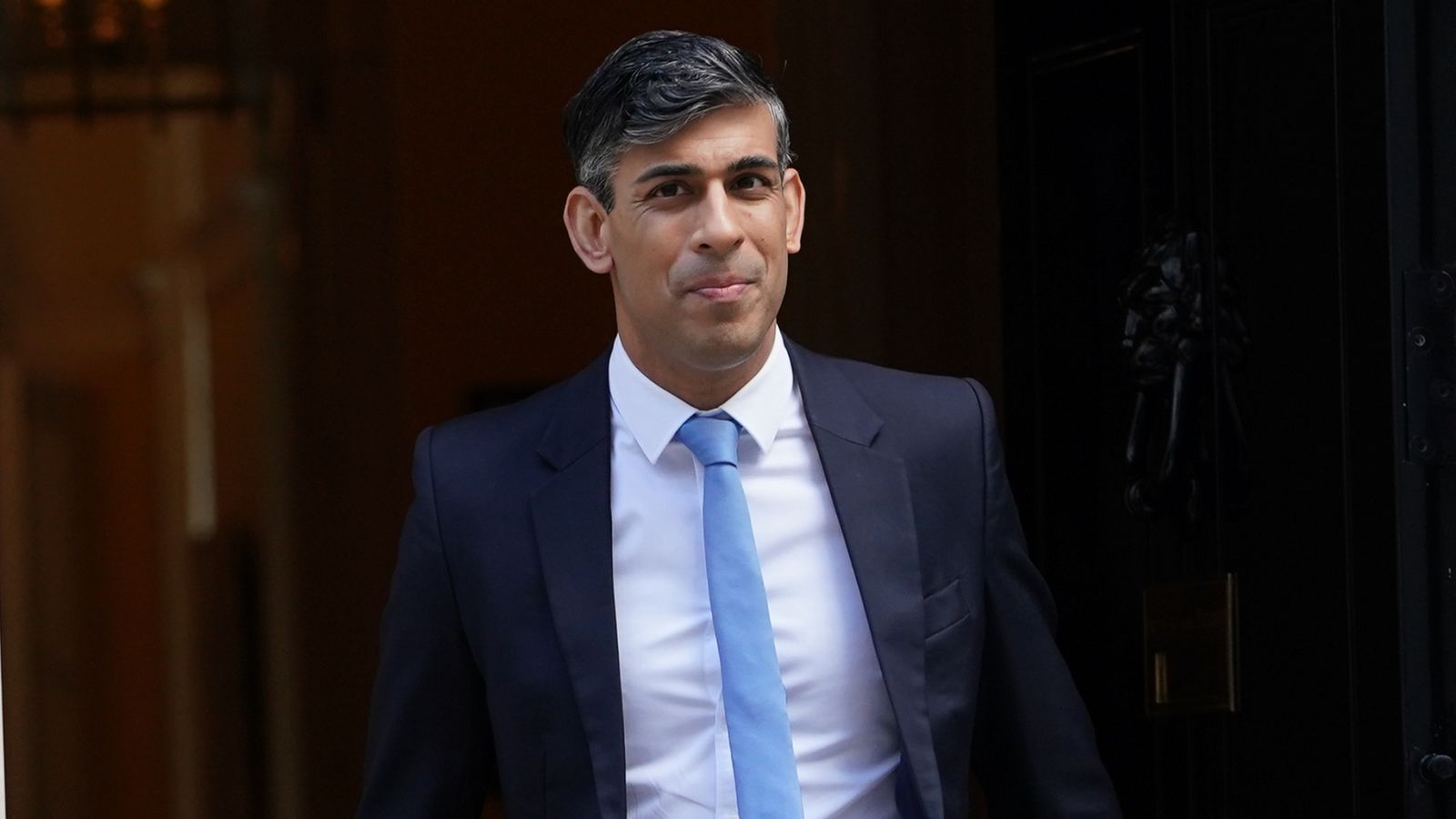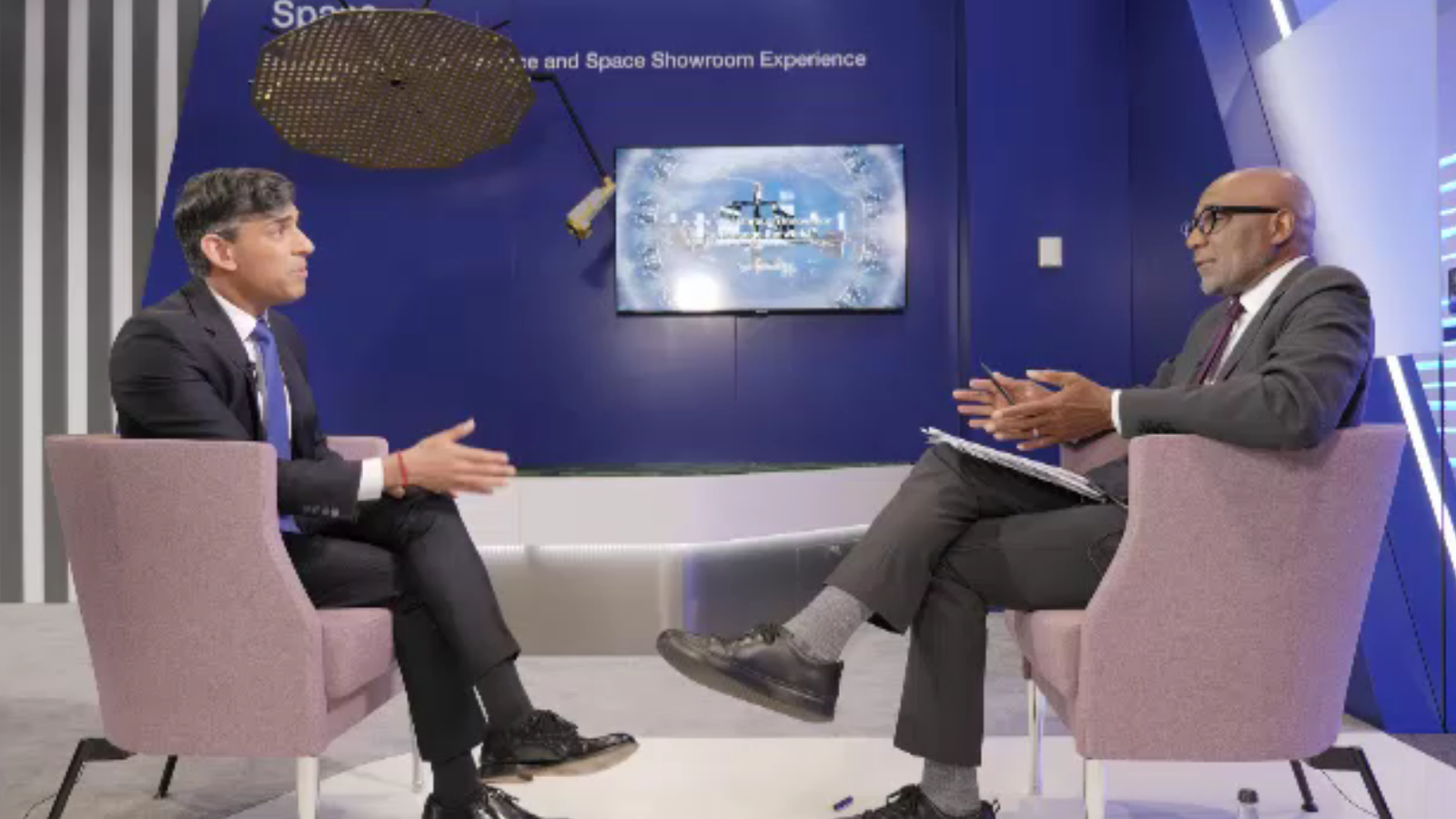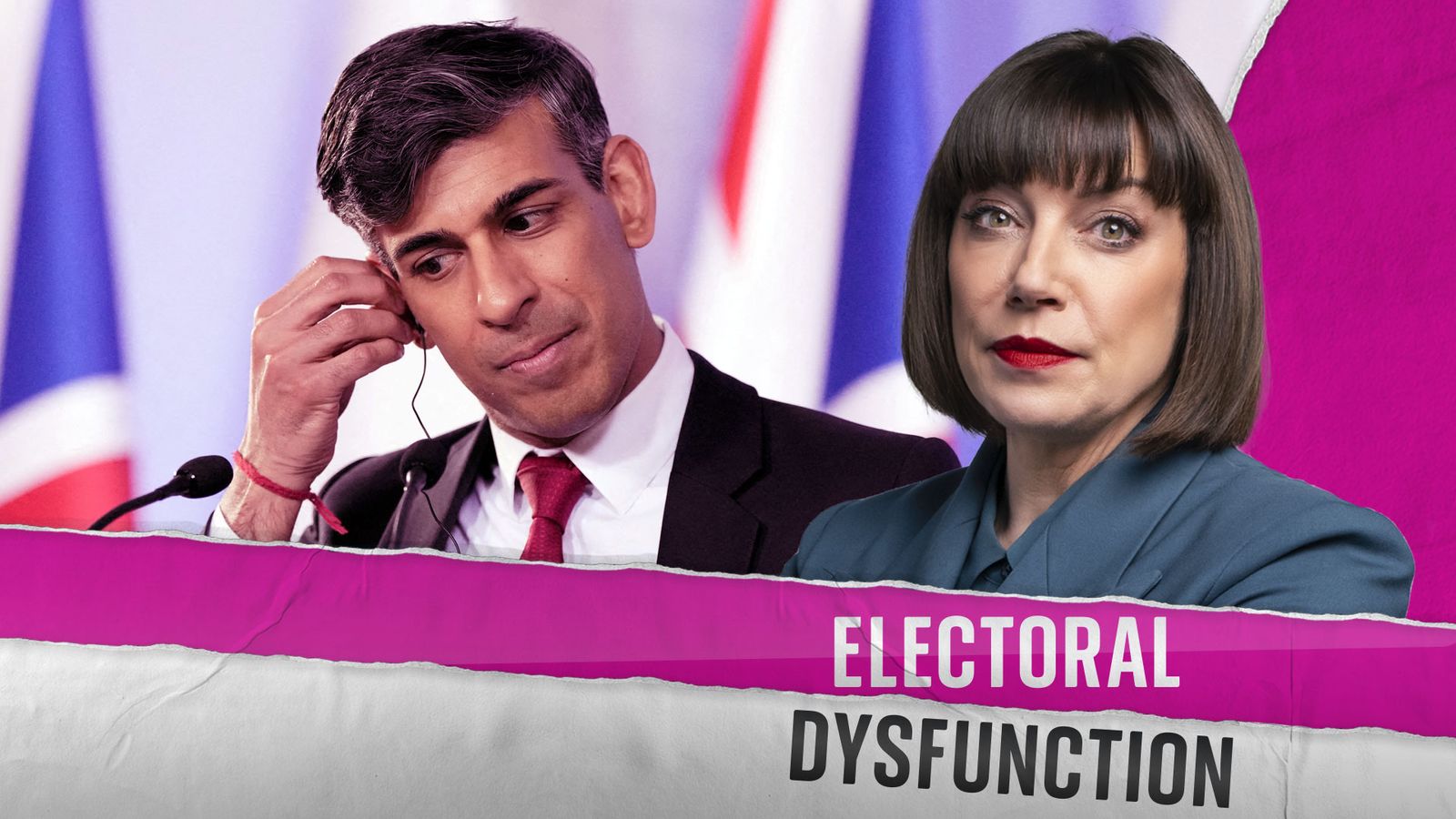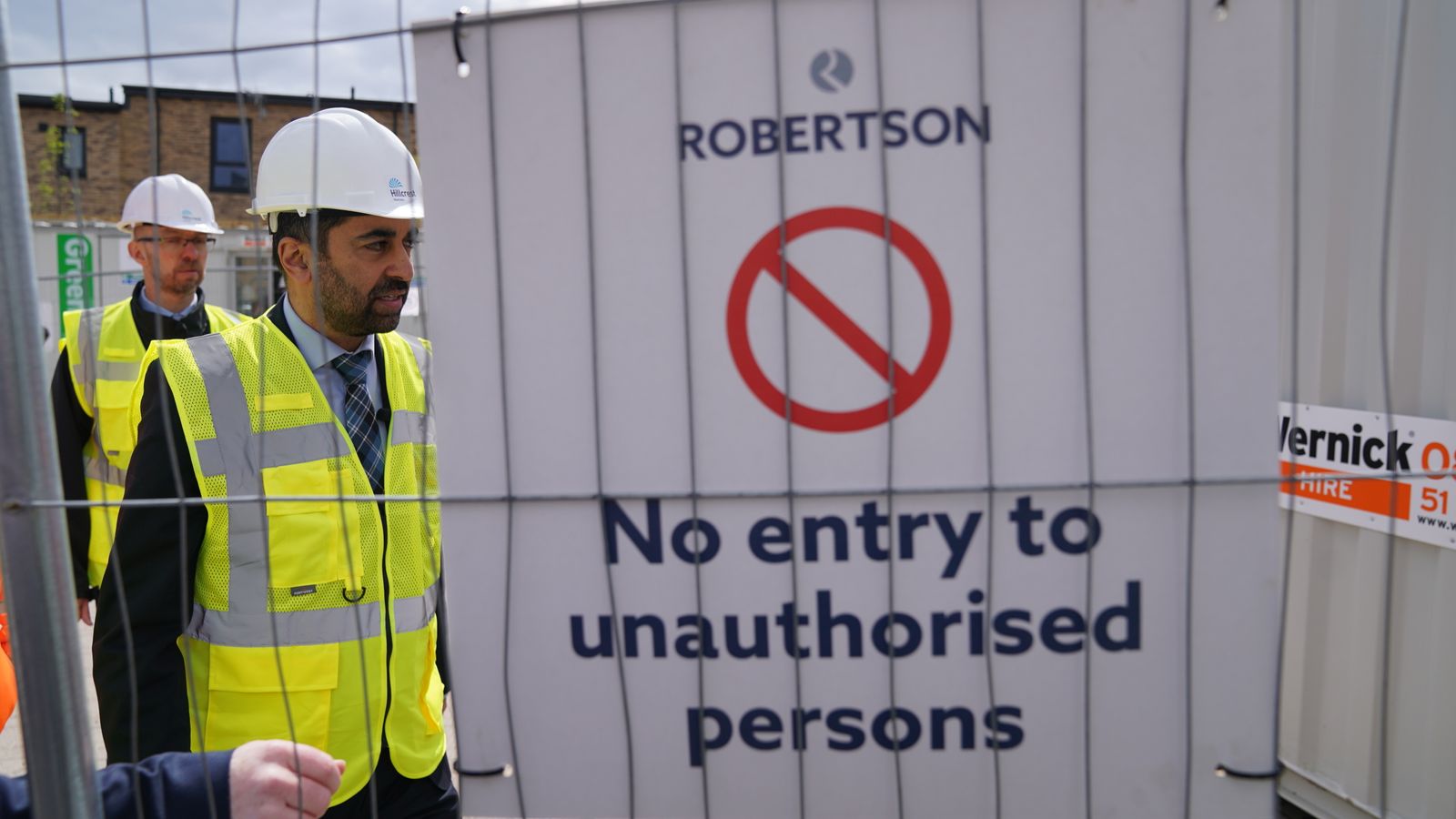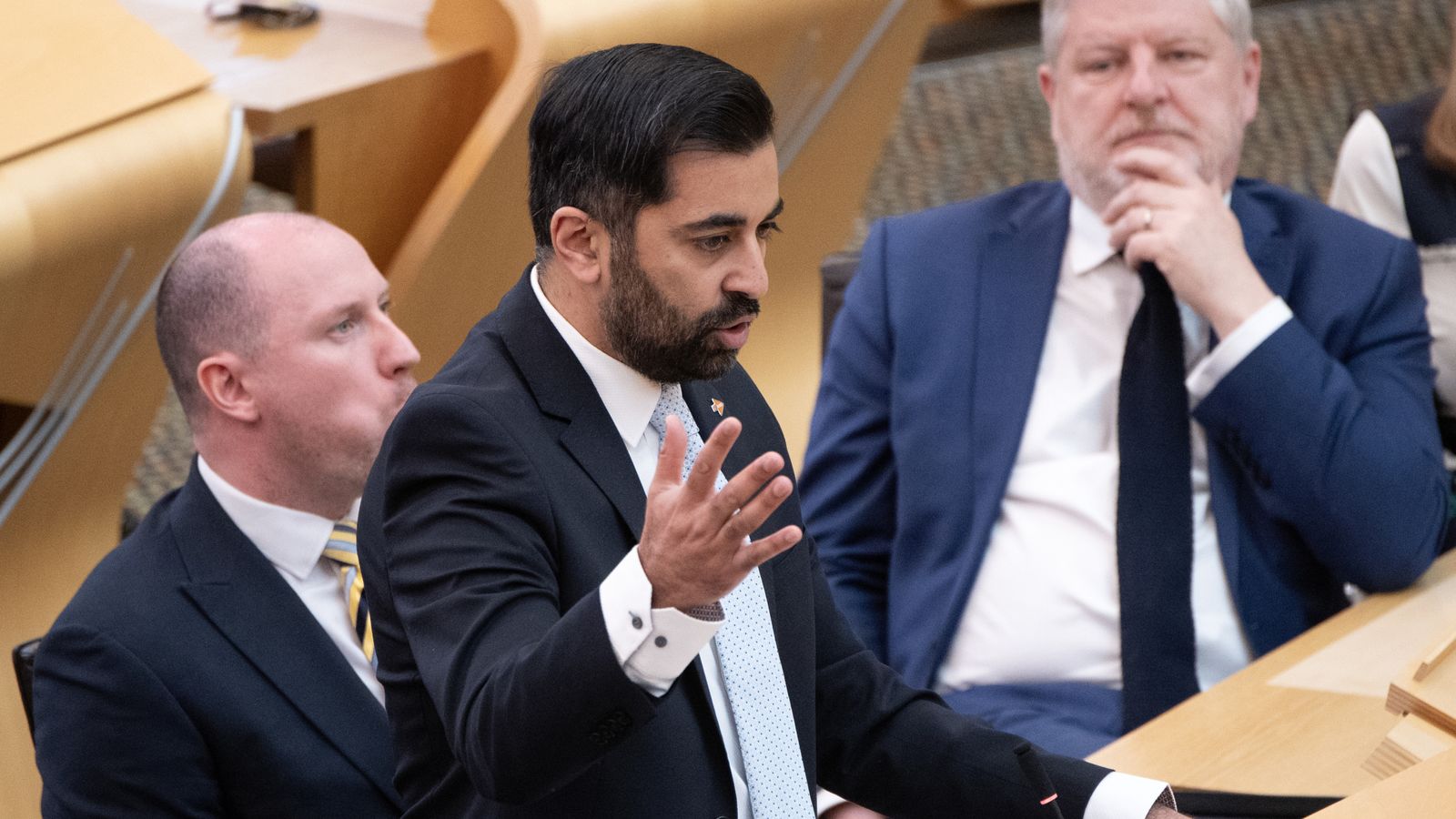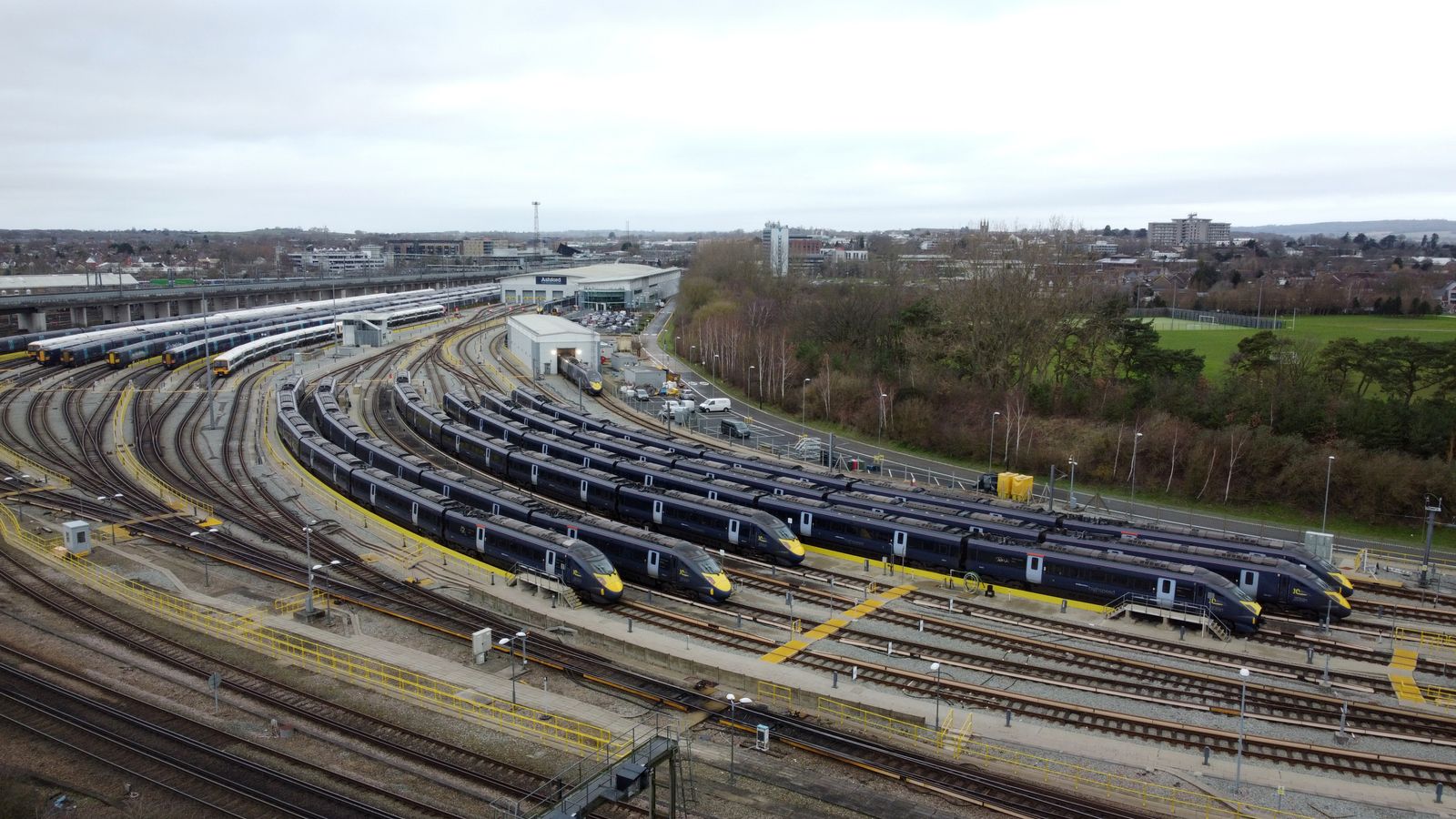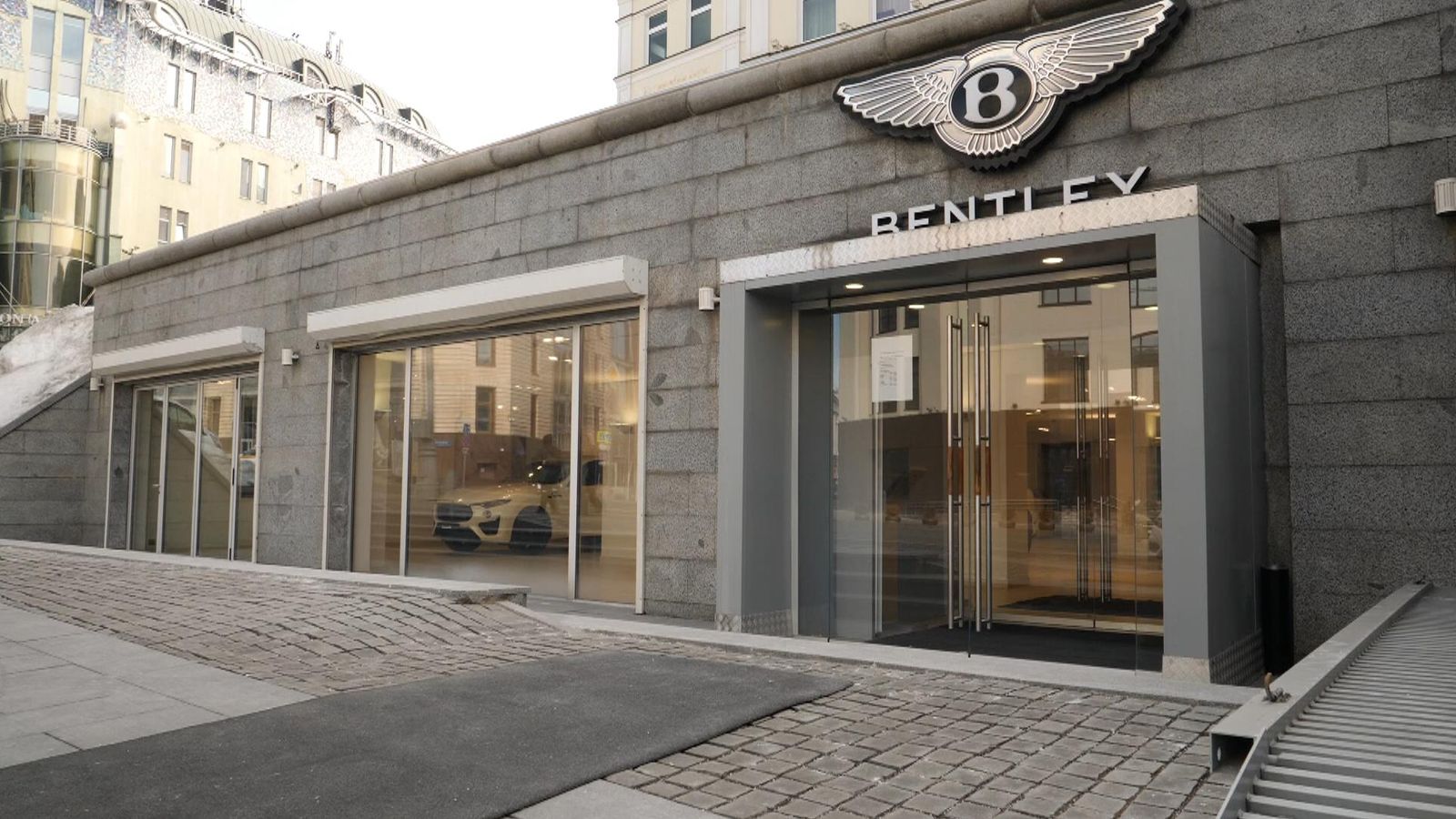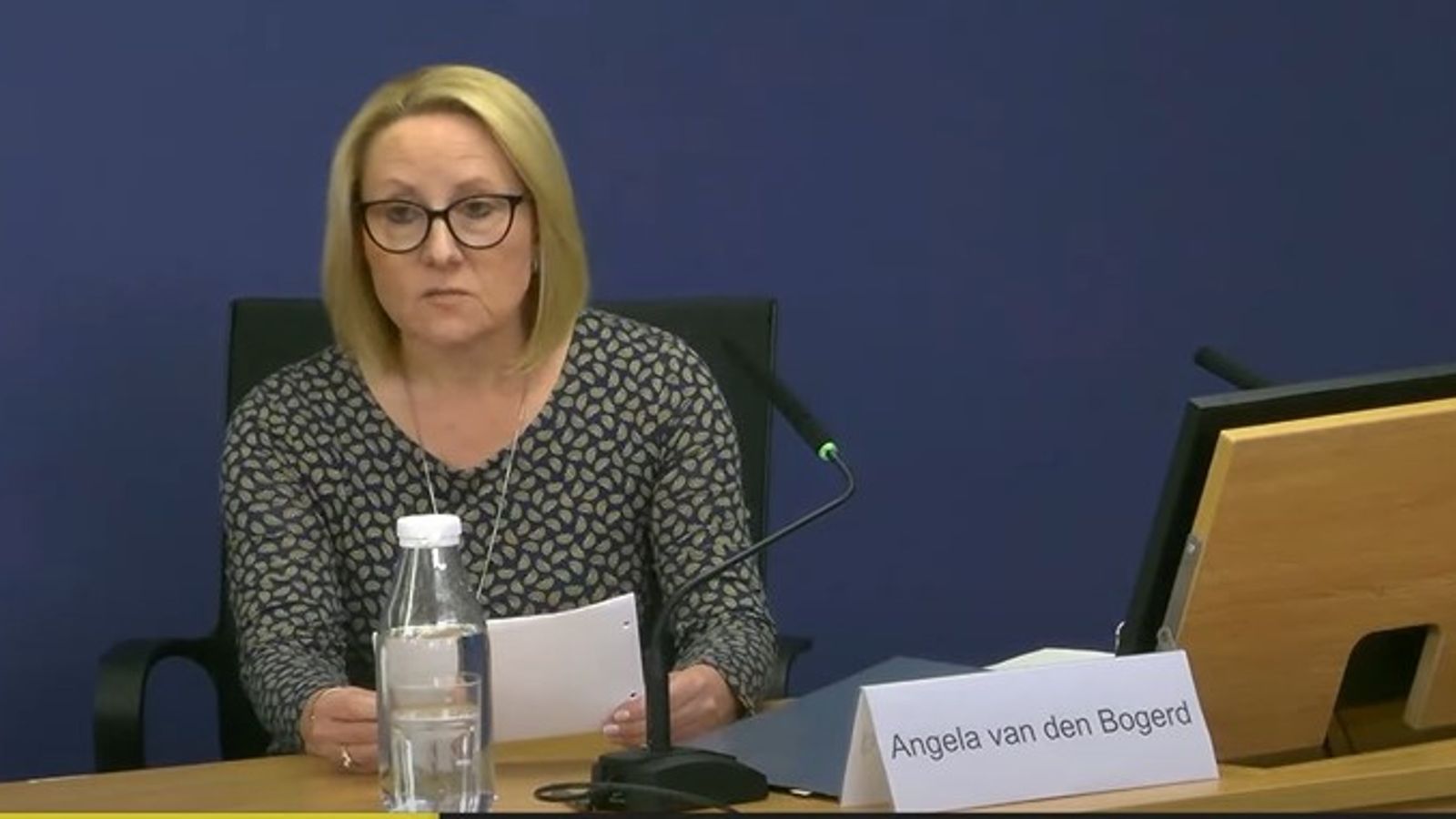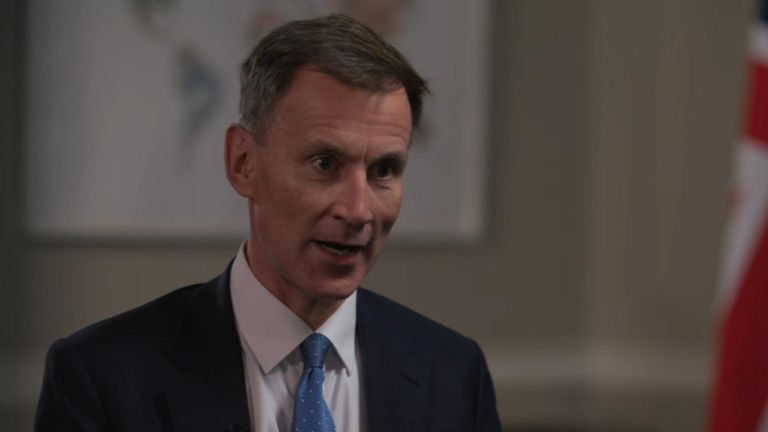
Chancellor Jeremy Hunt has insisted his tax cuts are about “long-term growth” for the economy, calling it “silly” to think they were instead about the timing of the next election.
The Conservative Party has been told to be ready for a general election from 1 January, a senior government source told Sky News’ political editor Beth Rigby, with a vote being called as early as May if Wednesday’s autumn statement goes down well with voters.
In his speech to the Commons, Mr Hunt announced a raft of measures that some see as a pre-election giveaway, including reducing national insurance for employees from 12% to 10% and scrapping it entirely for the self-employed.
But economists have pointed out that the overall tax burden will remain at a record high because of the continued freeze on tax thresholds.
And the Resolution Foundation claimed the richest households would benefit the most, with the top fifth gaining an average of £1,000 a year, compared to £200 for the bottom fifth.
Politics live: ‘Clear choice’ at next election, says Hunt
The chancellor told Sky News he had not chosen “the most populist tax cuts”, with most of the policies aimed at boosting business growth.
But he denied the NI cuts were there to win over voters ahead of a campaign, saying: “It’s silly to think about this in terms of the timing of the next election. We’re trying to make the right decisions for long-term growth of the economy.”
The tax cuts came amid long-standing pressure from the Tory backbenches to reduce the burden on both the public and business, which has been sat at a 70-year high.
But a general election is also looming, with the government having to call the ballot by January 2025 at the latest, and the Conservatives are still lagging behind Labour in the polls.
A senior government source told Rigby that the Tories’ campaign director, Isaac Levido, is due to join the party’s headquarters on a full-time basis from the new year in order to make sure they are ready for the election as soon as possible.
Another senior source also told Sky News’ political editor that the plan was to “prepare for November” but be “ready for May”, in case the tax cuts help them narrow the gap, giving them a better chance of winning an historic fifth term in office.
But it also gives them an option if the measures go down badly on their own backbenchers and a confidence vote is called on Prime Minister Rishi Sunak’s leadership, allowing him to trigger a snap election.
Mr Hunt defended the fact the tax burden had been so high in recent years, telling Sky News’ Kay Burley “it was right to help families” through COVID and the cost of living crisis, but that comes at a cost.
“I also think it’s right to make a start in bringing down taxes,” he added. “But the taxes that I brought down are not the crowd pleasers that were on the tip of everyone’s tongues, inheritance tax or income tax.
“They’re the taxes that are going to help businesses grow, and that is the way that we will increase our long-term prosperity, raise wages, raise living standards. And that was the choice that a Conservative government made yesterday.”
He added: “What I do acknowledge is that we’re going to show discipline in public spending. It’s not going to grow in real terms as fast as some people would like.
“But that is happening because I’m choosing to cut taxes mainly for business, and to help businesses recruit more people.
“I accept that we are going to have to make difficult decisions, not do all the spending that everyone would want. But what I would say in the longer run is if you want to put more money into the NHS, you need a strong economy.”
But the head of the Office for Budget Responsibility, Richard Hughes, said the government had found £20bn for tax cuts by deciding to not protect public services against the growing costs of inflation.
The director of the Institute for Fiscal Studies, Paul Johnson, agreed, saying the “substantial tax cuts” the chancellor had put forward were being “paid for by planned real cuts in public service spending”.
Mr Hunt also attempted to draw a line in the sand between the Tories and Labour, adding: “What Conservatives say is the only way that we’ll increase prosperity for families up and down the country is by making businesses more competitive. It’s what economists call supply side measures.
“The Labour approach is to boost demand in the economy by raising borrowing by £28bn a year. I agree that has a short-term impact, but the longer-term result of increasing borrowing is more debt, higher debt payments, that means that taxes have to go up to pay for them, that makes our economy less competitive.
“So there is a very big difference between the Conservative approach and the Labour approach. And why, in the end, do people vote Conservative in elections? It’s because they trust us to make decisions for the long term growth of the economy. That’s what we did yesterday.”
Giving her assessment of the autumn statement, Labour’s shadow chancellor Rachel Reeves said there “wasn’t anything… that remotely compensates for the tax increases that we have had under the Conservatives these last four years” and the tax burden under the Tories was just set to increase.
Speaking to Sky News, she added: “In the end, how do you know if you’re better off? It’s your bank balance.
“And the truth is that this will be the first parliament ever where real disposable incomes are going to be lower at the end of it than they were at the beginning.
“People can see that when they look at their bank statements, when they log in to their bank accounts and see that the taxes that are being taken, the mortgage payments that are going out, the gas and electricity bills… that again are going to rise in January, all putting big pressure on the family finances and the tax increases that have already been announced [are more] than the chancellor gave back yesterday.”

